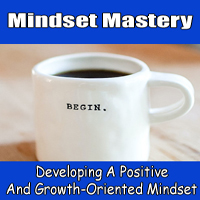


The Path To Success And Fulfillment

Professional endeavors are the pursuits that drive individuals to seek success and fulfillment in their chosen careers. Whether you're just starting on your career path or you've been working for years, understanding the importance of professional endeavors and how to navigate them effectively is key to achieving your goals. In this article, we will explore the significance of professional endeavors and how to approach them for personal growth and achievement.
Professional endeavors encompass a wide range of goals and ambitions in the working world. These pursuits can include building a successful career, starting a business, pursuing a specific profession, or even advancing within an organization. Each endeavor is unique, but they all share a common thread: the desire to achieve success and personal fulfillment in the professional realm.
The pursuit of professional endeavors often involves setting clear and achievable goals. These goals serve as the roadmap to guide your efforts and provide a sense of direction in your career. By defining your objectives, you can measure your progress and make informed decisions about the steps needed to reach your desired destination.
An important aspect of professional endeavors is the willingness to embrace challenges and adversity. As you strive for success, you are likely to encounter obstacles and setbacks. These challenges are not roadblocks but opportunities for personal and professional growth. Each hurdle you overcome adds to your experience and resilience.
Networking and building meaningful professional relationships are also crucial in the world of professional endeavors. Connections with mentors, colleagues, and peers can provide guidance, support, and valuable insights into your chosen field. These relationships can open doors to new opportunities and expand your knowledge.
Continuous learning is fundamental to success in professional endeavors. The world is constantly evolving, and staying updated with the latest trends, technologies, and industry developments is essential. Pursuing further education, attending workshops, and seeking out opportunities for skill enhancement can give you a competitive edge.
Professional endeavors can be deeply fulfilling when they align with your passions and values. Consider what truly motivates you and fuels your enthusiasm in your chosen field. When your professional pursuits align with your personal values, work becomes more than a job; it becomes a source of personal satisfaction and purpose.
Another key to achieving success in professional endeavors is effective time management and organization. Balancing the demands of work with personal life, setting priorities, and maximizing productivity are essential skills for navigating your career path effectively.
Professional endeavors are the driving force behind career success and personal fulfillment. Whether you're striving to climb the corporate ladder, launch your own business, or excel in your chosen profession, the pursuit of professional goals is a dynamic and transformative journey. By setting clear objectives, embracing challenges, networking, continuous learning, and aligning your endeavors with your values, you can navigate your professional path with confidence and achieve the success and fulfillment you desire. Remember, your professional endeavors are not just a means to an end; they are an integral part of your life's journey, offering opportunities for growth and personal development.
Overcoming Emotional Challenges And Their Lingering Shadows
 Understanding Emotional Challenges And Shadows
Understanding Emotional Challenges And Shadows
Emotional challenges encompass a wide range of experiences, including grief, anxiety, depression, trauma, and more. These challenges create emotional wounds that, if left unaddressed, can manifest as "shadows" - persistent negative emotions, thought patterns, or behaviors that linger and continue to affect our lives.
Acknowledge The Challenges
The first step in overcoming emotional challenges is acknowledging their existence. It can be difficult to confront your feelings, but denial or suppression only prolongs the healing process. Accept that you are facing emotional challenges and that it's okay to seek help and support.
Seek Professional Assistance
One of the most valuable steps in overcoming emotional challenges is seeking professional help. Therapists, counselors, and mental health experts can provide the guidance, strategies, and tools to navigate complex emotional issues. Their expertise can be pivotal in addressing the shadows these challenges cast.
Accept And Express Your Emotions
Emotional challenges often bring forth a flood of emotions, and it's essential to accept and express them. Whether through talking with a trusted friend, keeping a journal, or engaging in artistic expression, letting your emotions out can be cathartic and help you understand the depth of your feelings.
Develop Coping Strategies
As you confront emotional challenges, it's essential to develop healthy coping strategies. These strategies can include mindfulness, meditation, exercise, and stress-reduction techniques.






Finding Balance And Resilience
 The concept of the ebb and flow is deeply rooted in the natural world, particularly in the rhythmic patterns of the ocean. The ebb refers to the tide going out, and the flow represents the tide coming in. These natural cycles symbolize the constant change and movement in the world around us.
The concept of the ebb and flow is deeply rooted in the natural world, particularly in the rhythmic patterns of the ocean. The ebb refers to the tide going out, and the flow represents the tide coming in. These natural cycles symbolize the constant change and movement in the world around us.
In our lives, the ebb and flow can be observed in various aspects, including personal experiences, relationships, careers, and even our emotional states. During the ebb, we may face challenges, setbacks, or periods of decline. These moments can be difficult, but they also offer valuable opportunities for learning, self-reflection, and growth.
The flow, on the other hand, represents moments of growth, success, and abundance. These are the times when we experience achievements, personal fulfillment, and joy. Just as the ebb teaches us resilience, the flow reminds us to appreciate and savor life's positive moments.
Resilience is a vital quality developed through the ebb and flow of life. It is the ability to bounce back from adversity and adapt to change. When we face setbacks or challenges, we have the opportunity to build our resilience, which enables us to navigate future difficulties with greater strength and determination.
Acceptance is another key aspect of embracing the ebb and flow. Learning to accept that change is a natural part of life can reduce stress and anxiety when facing challenging moments. Instead of resisting change, we can adapt, evolve, and find new solutions.
Embracing Transformation As A Catalyst For Growth
 Empowering change is about taking charge of your own life and actively participating in your growth process. It involves making conscious choices and taking decisive actions that align with your goals and values. When you play an active role in change, you gain a sense of control over your destiny.
Empowering change is about taking charge of your own life and actively participating in your growth process. It involves making conscious choices and taking decisive actions that align with your goals and values. When you play an active role in change, you gain a sense of control over your destiny.
One of the keys to empowering change is self-awareness. Understanding your strengths, weaknesses, values, and aspirations allows you to make more informed decisions when navigating transitions. Self-awareness helps you choose paths that resonate with your true self, leading to a more authentic and purposeful life.
Empowerment through change also involves setting clear goals. When you have a sense of purpose and direction, change becomes a means to achieve your desired outcomes. Setting achievable goals helps you focus your energy and effort on what truly matters, ensuring that change serves your personal growth.
Adaptability and flexibility are essential qualities to develop when embracing change. Being open to new experiences and perspectives enables you to learn and grow from each transition. It's through these adjustments that you develop the skills and resilience necessary to thrive in an ever-changing world.
Moreover, connecting with others who have experienced similar changes can provide valuable support and insights. Sharing experiences, seeking guidance, and learning from those who have walked a similar path can empower you to overcome challenges and seize the opportunities that change brings.
Overcoming Fear And Embracing Growth
 Fear Of The Unknown: One of the primary reasons for resisting change is the fear of the unknown. Human beings have a natural tendency to seek comfort and stability. Change disrupts this sense of stability, triggering anxiety about what the future holds. The uncertainty of change can be paralyzing, causing individuals to resist it.
Fear Of The Unknown: One of the primary reasons for resisting change is the fear of the unknown. Human beings have a natural tendency to seek comfort and stability. Change disrupts this sense of stability, triggering anxiety about what the future holds. The uncertainty of change can be paralyzing, causing individuals to resist it.
Comfort In Familiarity: People often become accustomed to their current routines, environments, and relationships. Familiarity provides a sense of comfort and security. Change, even when positive, means stepping into unfamiliar territory, and this can lead to resistance as individuals gravitate towards what they know.
Fear Of Failure: Change often involves taking risks and trying new things. The fear of failure can discourage individuals from embracing change. They may worry that the new path they're embarking on will not be successful or that they lack the necessary skills to adapt to the changes.
Loss Of Control: Change can make people feel like they're losing control over their lives. The loss of control is unsettling, leading to resistance. Individuals may prefer the feeling of being in charge and resist any changes that disrupt their perceived control over their circumstances.
Emotional Attachment: Emotional attachments to people, places, or routines can create resistance to change. Leaving behind what one is emotionally attached to, even if it's no longer beneficial, can be emotionally challenging.
A Delicate Harmony
 Defining Success And Balance
Defining Success And Balance
Before delving into the strategies for achieving this harmonious balance, it's essential to define what success and balance mean to each person. Success is a deeply personal concept that can encompass career accomplishments, financial stability, personal growth, and fulfillment. Balance, on the other hand, relates to maintaining a proportionate distribution of time and energy between work, personal life, and well-being. Your definitions of success and balance may differ from those of others, and that's perfectly okay.
Prioritization And Goal Setting
Achieving success and balance begins with effective prioritization and goal setting. Clearly define your short-term and long-term goals for your career, personal life, and well-being. By establishing your priorities and identifying what truly matters to you, you can allocate your time and resources more efficiently. Remember that not all goals are of equal importance, so it's crucial to differentiate between what is urgent and what is essential.
Time Management And Boundaries
Time management is a critical component of achieving success and balance. Create a structured schedule that allows for dedicated time for work, personal life, and self-care. Setting boundaries is equally vital; it means learning to say "no" when necessary and protecting your personal time from the encroachments of work-related tasks. Establishing boundaries helps maintain the equilibrium between your professional and personal life.
Navigating The Journey Of Self-Discovery
 Define Your Goals: Clearly define your goals. These goals act as destinations on your roadmap. Whether they're related to your career, personal development, relationships, or any other aspect of life, having well-defined objectives will provide you with a sense of purpose and direction.
Define Your Goals: Clearly define your goals. These goals act as destinations on your roadmap. Whether they're related to your career, personal development, relationships, or any other aspect of life, having well-defined objectives will provide you with a sense of purpose and direction.
Set A Plan: A roadmap is only effective when it comes with a plan. Break down your goals into actionable steps. Consider what skills, knowledge, or resources you need to acquire. Creating a strategic plan will ensure you stay on track.
Lifelong Learning: To reach your potential, you must embrace lifelong learning. Seek knowledge, acquire new skills, and stay curious. Engage in reading, attend workshops, take courses, and surround yourself with individuals who inspire you to grow.
Resilience: Challenges are inevitable on your journey to potential. Resilience is your ability to bounce back from setbacks. Accept that you might encounter obstacles and setbacks, but also recognize that they are opportunities to learn and grow.
Consistent Action: Potential isn't unlocked by intention alone; it requires consistent action. Make a habit of taking small, purposeful steps toward your goals every day. Consistency leads to progress.
Positive Mindset: A positive mindset is your driving force. Focus on solutions, cultivate optimism, and maintain a "can-do" attitude. This mindset not only fuels your confidence but also attracts opportunities and positive outcomes.